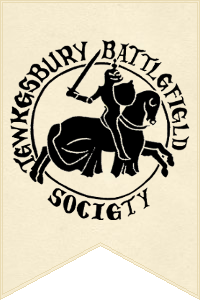April 18th 1471: No rest for the Victor
Testing a Culverin
(Tewkesbury Medieval Festival)
The Battle of Barnet had been hard-fought and hard won. Unlike many other battles of the period, both sides sustained heavy casualties and Edward had lost some of his senior commanders. After the battle, the sick had to be tended. The principle source of medical knowledge, such as it was, was in the infirmaries in the monasteries which dotted the landscape, but they had a limited capacity. The armies had recruited barber-surgeons to tend to the inevitable injuries of battle, and these men must have been in very high demand afterwards. A great many men, though, must have been left to their own resources and the compassion of the housewives of Barnet and the immediate vicinity.
Edward had other things on his mind. He knew by now that a new Lancastrian threat was growing in the west, and he needed to find a new army to counter it. The ‘Arrivall’ explains his actions:
The King being at London, and having knowledge of all this their demeaning from time to time, anon purveyed for the reliving of his sick and hurt men, that had been with him at Barnet field, which were right many in number, what left at London, and what in the country, and sent to all parts to get him fresh men, and, incontinent, prepared all things that was thought behovefull for a new field ; which he saw was imminent and coming on. So purveyed he artillery, and ordinance, guns, and other, for the field great plenty.
And Friday, the xix. day of Aprille, he departed out of London, and went to Windsor,
Windsor was the chosen place for mustering this new army, if he could persuade men to yet again join him in his adventure.
The Calendar of Patent Rolls expands on the efforts made to recruit non-combatants and get the ordinance ready for another battle.
To take wheelers cartwrights and other carpenters, stone cutters, plumbers and other workmen for the works of the King’s ordinance, bombards, culverins, fowlers, serpentines and other powder, sulphur, saltpetre, stone, iron, lead and other necessaries for them, crossbows and bolts, bows, arrows, bowstrings, ox-tongue spears, lances, glaives and hammers and other necessaries and carriage for the same and horses called hackneys.
The concentration on gunpowder weapons is surprising, but they were becoming increasingly important in conflicts.

